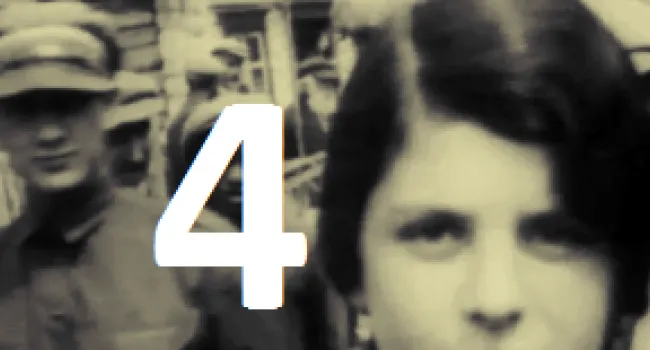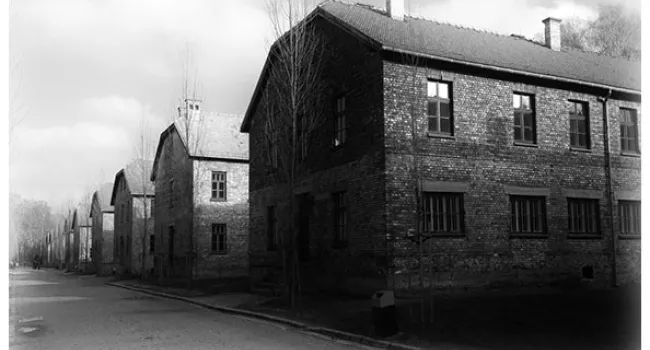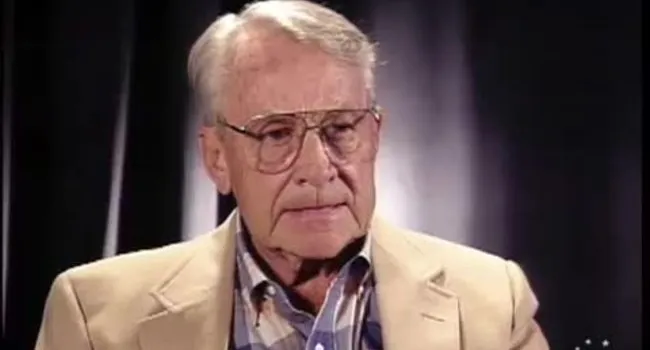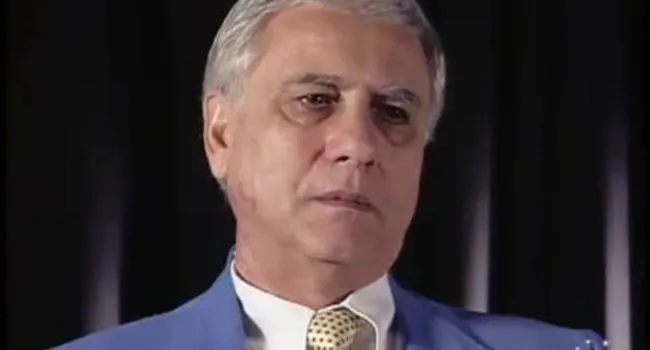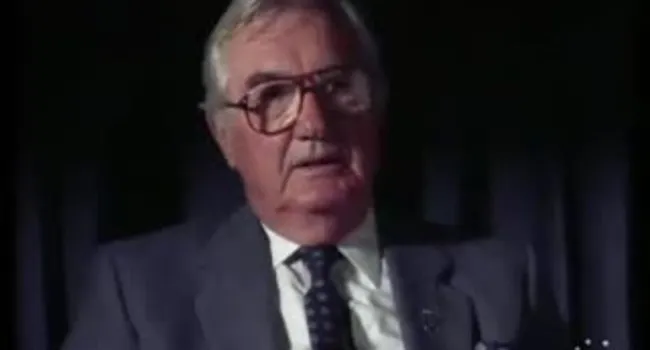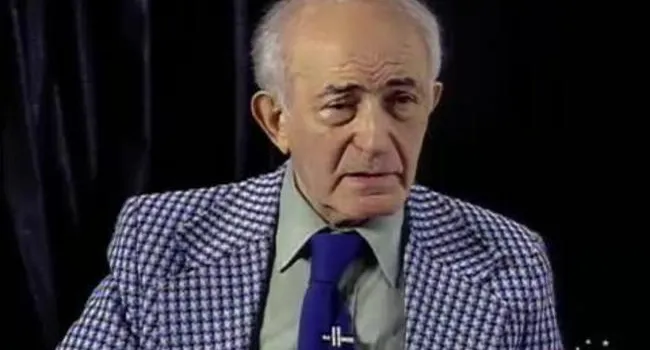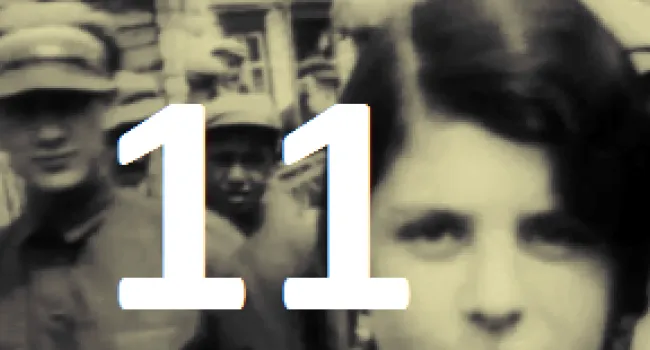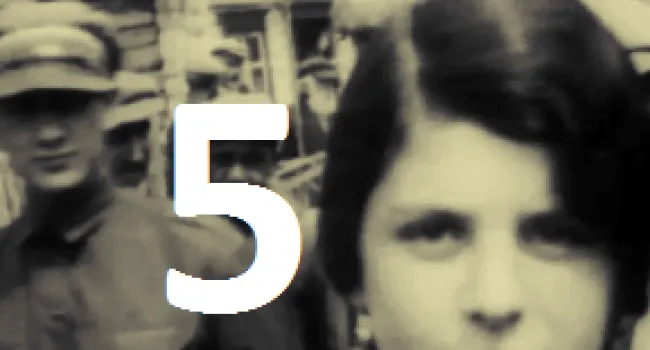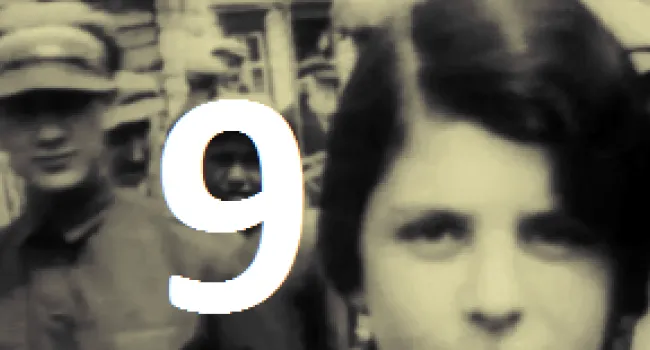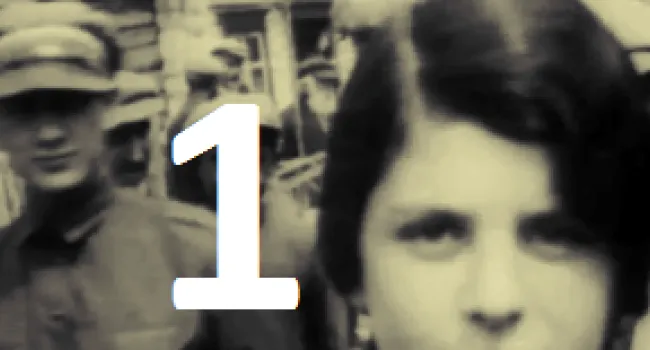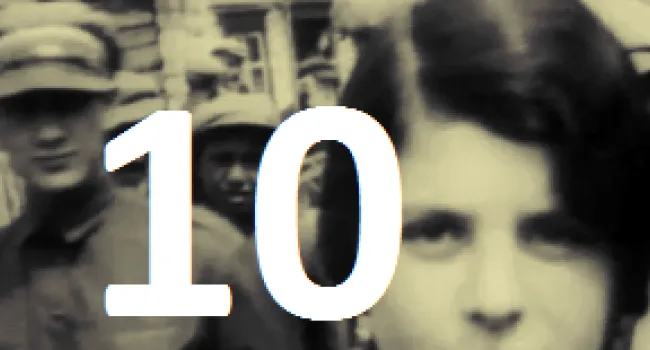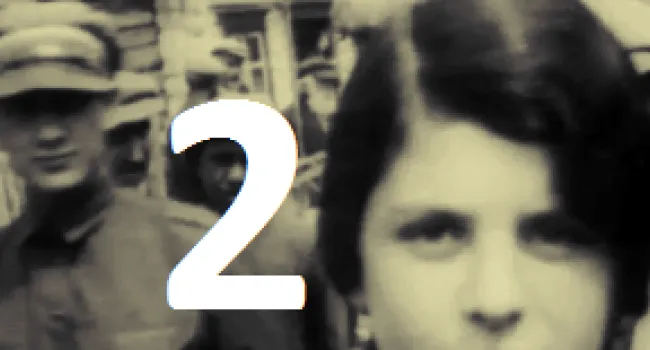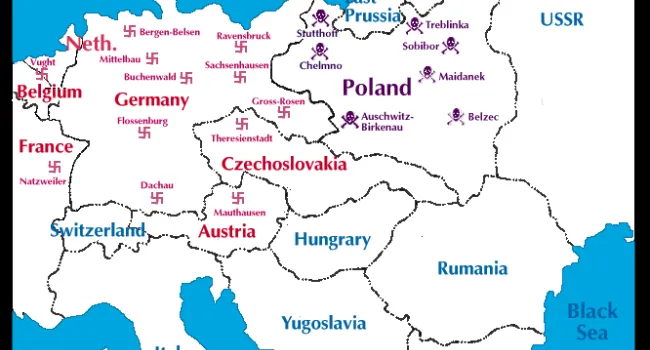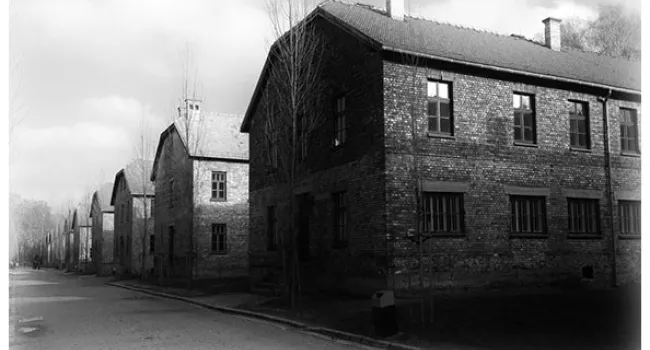Nathan Schaeffer was born in New York City and was serving in the U.S. Army when following Liberation he was sent to Buchenwald Concentration Camp. The Germans living nearby the camp claimed not to know what had gone on. Yet, the terrible odor of rotting flesh reached for five miles beyond camp. A big, wired fence and machine gun posts surrounded the area. Several hundred bodies were piled on a wagon ready for the furnace. Schaeffer learned that when prisoners couldn't work any longer, they were taken to crematoriums. The U.S. Army tried to feed them. The prisoners' fear of superiors was great. Pictures were printed in U.S. newspapers and there was shock and outrage. "No battlefield smelled or looked as terrifying as a concentration camp. We must record what went on, in textbooks, so that never again in the history of mankind can any group or country or individual deny that there was a Holocaust, or let it happen again."
Standards
- 5.3 Demonstrate an understanding of the economic, political, and social effects of World War II, the Holocaust, and their aftermath (i.e., 1930–1950) on the United States and South Carolina.
- 6.5.CE Explain the impact of nationalism on global conflicts and genocides in the 20th and 21st centuries.
- 7-4 The student will demonstrate an understanding of the causes and effects of world conflicts in the first half of the twentieth century.
- The influence of both world wars and the worldwide Great Depression are still evident. To understand the effects these events had on the modern world, the student will utilize the knowledge and skills set forth in the following indicators:
- 7-4.5 Summarize the causes and course of World War II, including drives for empire, appeasement and isolationism, the invasion of Poland, the Battle of Britain, the invasion of the Soviet Union, the "Final Solution," the Lend-Lease program, Pearl Harbo...
- 7-4.6 Analyze the Holocaust and its impact on European society and Jewish culture, including Nazi policies to eliminate the Jews and other minorities, the Nuremberg trials, the Universal Declaration of Human Rights, the rise of nationalism in Southwest...
- The influence of both world wars and the worldwide Great Depression are still evident. To understand the effects these events had on the modern world, the student will utilize the knowledge and skills set forth in the following indicators:
- 8.5.CO Compare South Carolina and U.S. wartime contributions and demobilization after World War II.
- USHC-7 The student will demonstrate an understanding of the impact of World War II on the United States and the nation’s subsequent role in the world.

